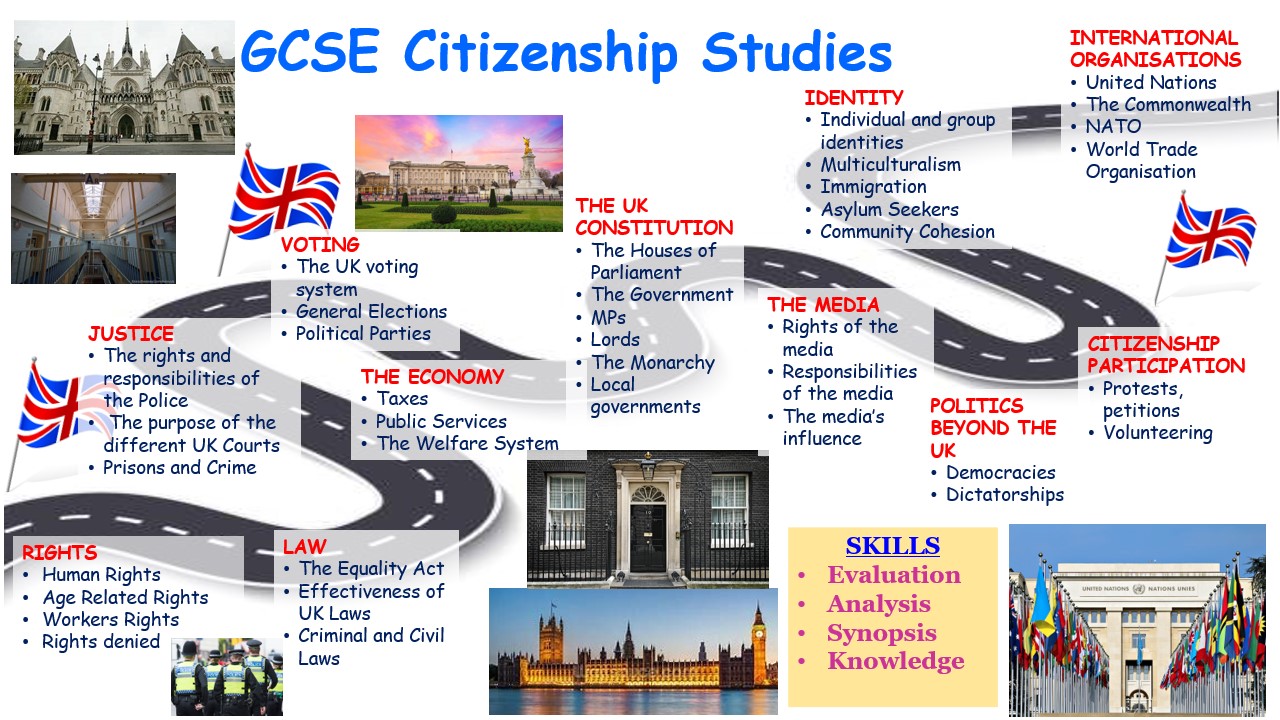Citizenship
Students who study GCSE Citizenship develop an understanding of what it means to live in a democracy and the rights and responsibilities which come with this. Students also learn how the UK Government works, how our laws are made and the role of the justice system in upholding the law. Students get a chance to investigate news stories and discuss issues which have happened in the country from one week to the next. This allows them to develop their understanding of current affairs, to express their opinions on these matters, and to debate with others in the classroom environment. Students participate in their own Citizenship Action which gives them a chance to bring about a change or raise awareness concerning an issue. Through this, students develop key skills including evaluation, analysis of statistics, research and groupwork – all important skills for a 21st century responsible citizen.
*****
A Successful Key Stage 4 Citizenship Student will be able to confidently explain about our legal and justice system and will understand how voting works in this country with the responsibility that voters have at elections. Students will be able to compare the UK Government with other countries and will use statistics to explain reasons why some countries are seen as more democratic than the UK and why some countries are less democratic. Students will understand how the UK is culturally diverse and know the variety of reasons for immigration to this country. They will confidently be able to explain key citizenship terms such as asylum seeker and economic migrant which are so often misunderstood. Students will be interested in following UK news stories as they emerge and develop and understand the relevance of them. Students will be able to distinguish between fact and opinion and understand the responsibility of the media in reporting accurately. Most importantly students will enjoy learning about citizenship matters and be able to participate in conversations both inside and outside of the classroom, expressing their own opinions about issues and listening to other peoples’ views and beliefs.

